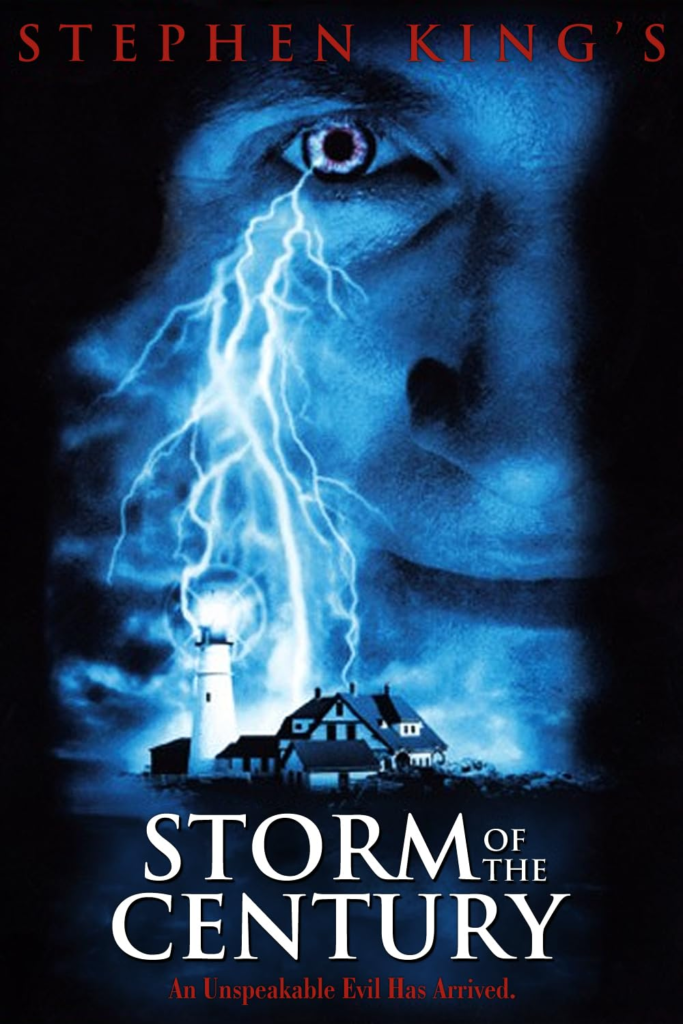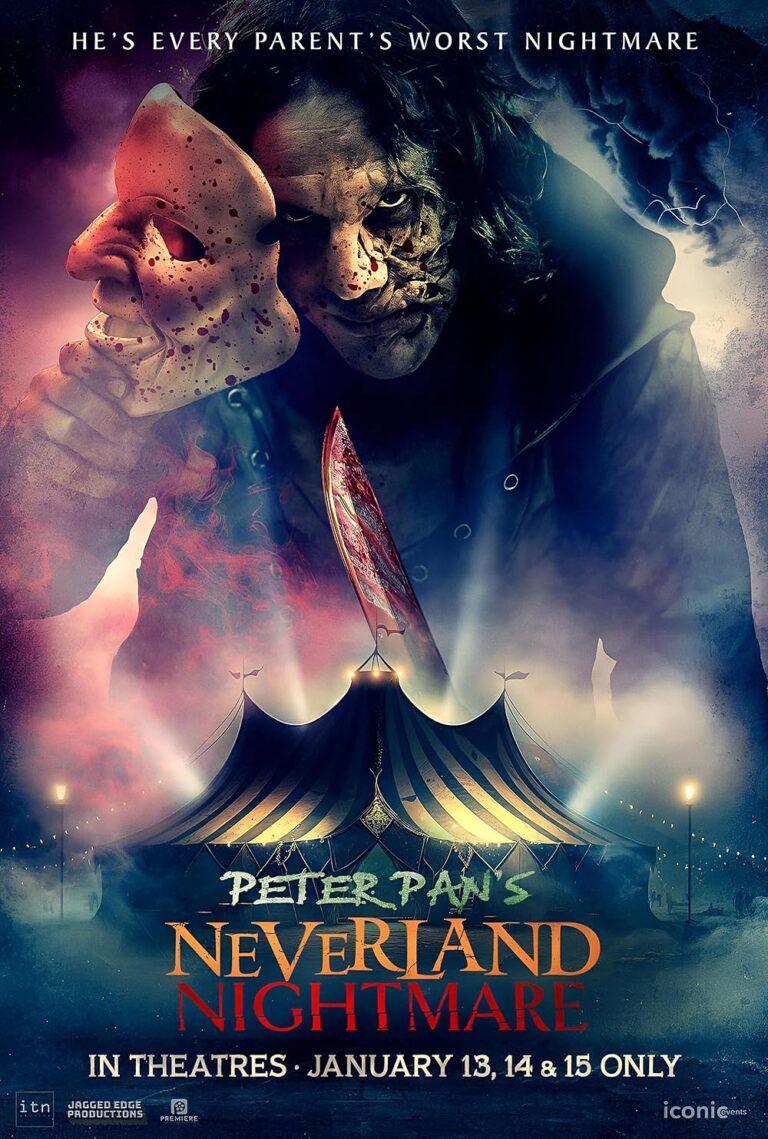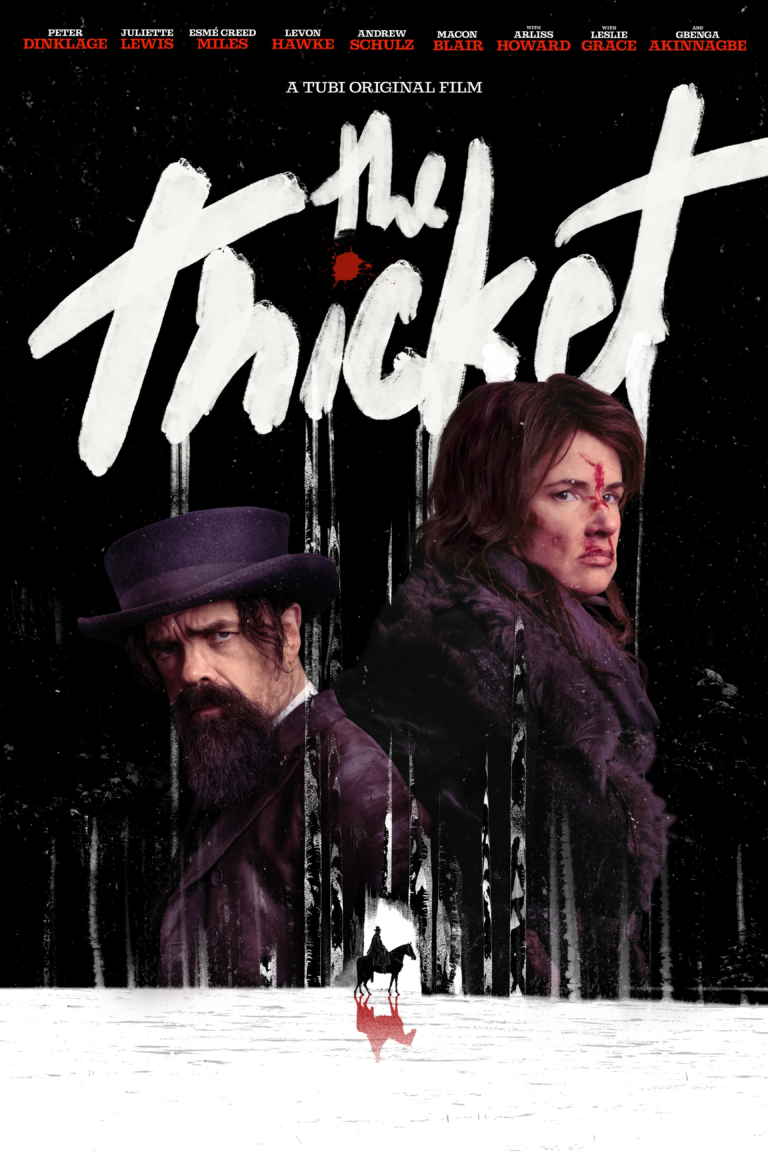Storm of the Century Christian Review

Stephen King’s Storm of the Century is a saga of darkness, humanity, and the aching pull of moral dilemmas—a riveting television miniseries that grabs you by the throat and demands your attention. With his uncanny ability to craft characters that feel unnervingly real, King tells a story that plunges deep into the psyche, dredging up fears that don’t merely rattle the nerves but sink into the soul.
This isn’t your average King adaptation, thank goodness. Over the years, many of his stories have made the jump to the small screen with varying degrees of success, but Storm of the Century feels like a storm all its own. This time, King doesn’t just aim for scares; he unearths moral truths with a precision that cuts to the quick.
The Calm Before the Storm
Set on a snow-battered island off the coast of Maine, the tale opens with a nor’easter roaring to life, isolating the town of Little Tall from the rest of the world. At first glance, it’s a picture-perfect setting for a horror story. Yet, as King’s narrative unfurls, the storm outside becomes a mere backdrop to the tempest brewing within the hearts of the townspeople.
Into this closed-off, tightly wound community strides Linoge, a soft-spoken yet utterly chilling antagonist played with unnerving calm by Colm Feore. Linoge is the embodiment of an ancient, implacable evil—not flashy or grotesque, but profoundly unsettling. His weapon isn’t brute force but the truth, wielded with a sharpness that shreds through the town’s veneer of civility.
The Devil’s Bargain
Linoge’s demand is deceptively simple: “Give me what I want, and I’ll go away.” What he wants isn’t money, treasure, or political power—it’s far darker. Slowly, agonizingly, the townspeople discover that Linoge has come to claim something so precious it forces them to grapple with their own fears, faith, and weaknesses.
For Christian viewers, the parallels to Scripture are impossible to miss. Linoge mirrors Satan in the Book of Job, an accuser who tests the righteous and reveals their deepest frailties. His methods are eerily reminiscent of the devil’s temptation of Christ in the wilderness. Linoge doesn’t compel; he whispers, prods, and tempts, his calm menace an echo of Genesis 3:1: “Did God really say…?”
Fear’s Tight Grip
This is where King’s genius truly shines. It’s not Linoge’s supernatural abilities that terrify; it’s the way he manipulates the townspeople’s fear. Watching them unravel is like staring into a mirror of our own potential failings. Fear makes us small, and here it shrinks an entire community into something pitiful and grotesque.
When the townspeople gather to decide whether to give in to Linoge’s demands, the scene is a masterclass in moral erosion. What begins as outrage and defiance gradually melts into resignation. They convince themselves they have no choice, rationalizing their decision with the kind of twisted logic that feels all too familiar in our modern world.
This moment struck me as painfully true to life. Fear and self-preservation are powerful motivators, and Storm of the Century doesn’t let us look away from that uncomfortable truth. In their capitulation, the townspeople lose more than what Linoge demands—they lose their humanity, their dignity, their faith in one another.
A Mirror to the Soul
One of the most unsettling aspects of Storm of the Century is its insistence on holding up a mirror to the audience. Linoge’s ability to unearth the town’s secrets forces each character—and, by extension, the viewer—to confront their own hidden sins.
As Christians, this is a moment of reckoning. The Bible teaches that “all have sinned and fall short of the glory of God” (Romans 3:23). Watching these characters grapple with their failings is a stark reminder of our own need for grace. And yet, the story offers no easy absolution. The townspeople’s sins are laid bare not to redeem them but to destroy them. It’s a sobering portrait of what happens when we turn away from the light.
The Human Horror
What sets Storm of the Century apart from other King adaptations is its focus on the horror of human choice. This isn’t a story about monsters lurking in the shadows or grotesque creatures wreaking havoc. The real terror lies in the decisions made by ordinary people under extraordinary pressure.
For Christian viewers, this is a profound and deeply challenging aspect of the story. We believe in free will, in the ability to choose between right and wrong, even when the stakes are high. And yet, Storm of the Century shows us how easily that freedom can be corrupted by fear, selfishness, and doubt.
A Moral Abyss
The climax of Storm of the Century is devastating not because of what Linoge does but because of what the townspeople fail to do. Their choice—or, more accurately, their refusal to choose righteousness—feels like a gut punch. It’s a moment that lingers, gnawing at the edges of your conscience long after the story ends.
In many ways, this is a parable for our times. In a world filled with moral gray areas and shifting ethical standards, Storm of the Century forces us to ask hard questions about what we truly believe and how far we’re willing to go to protect it.
Storytelling at Its Finest
From a purely artistic standpoint, Storm of the Century is a triumph. King’s script is razor-sharp, blending tension, humor, and pathos in a way that feels both timeless and utterly modern. The pacing is deliberate but never slow, allowing the story’s moral complexity to unfold naturally.
The performances are uniformly excellent, with Feore’s Linoge stealing the show. His calm, measured delivery makes him one of the most memorable villains in King’s oeuvre—a character who terrifies not because of what he does but because of what he represents.
The production design is equally impressive, capturing the claustrophobic isolation of Little Tall Island with a starkness that underscores the story’s themes. The snowstorm becomes a character in its own right, a relentless force of nature that mirrors the inner turmoil of the townspeople.
Final Reflections
For Christian viewers, Storm of the Century is more than just a horror story; it’s a cautionary tale, a mirror, and a challenge. It’s a reminder of the importance of faith, community, and moral courage in the face of overwhelming darkness.
But it’s also a warning. The townspeople’s failure to stand firm in their convictions serves as a stark reminder of what can happen when we allow fear to dictate our choices. As Ephesians 6:13 reminds us, “Therefore take up the whole armor of God, that you may be able to withstand in the evil day, and having done all, to stand firm.”
Rating: 9/10
Storm of the Century is a masterpiece of psychological horror and moral inquiry. While its bleakness may not be for everyone, its depth and complexity make it a must-watch for those willing to wrestle with its challenging themes. For Christians, it’s a call to examine our own hearts and to stand firm in faith, even in the face of the fiercest storms.







